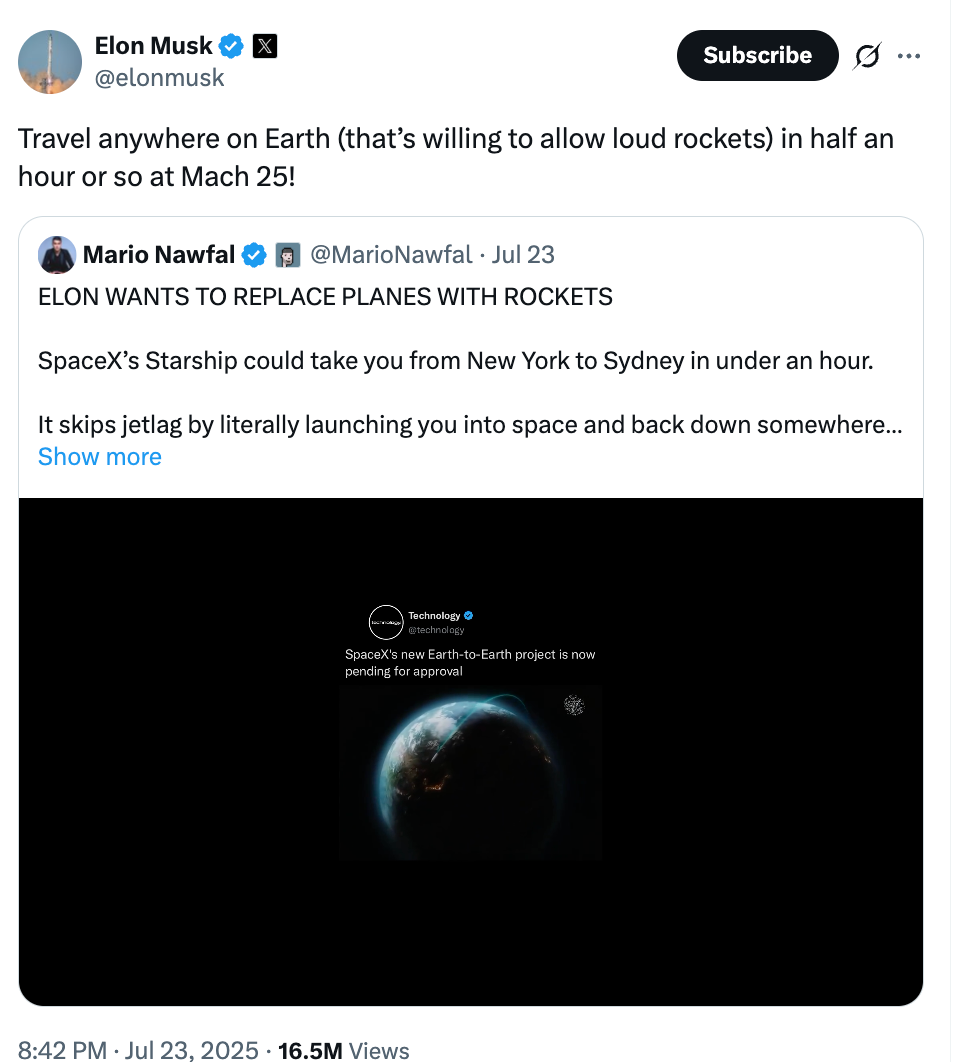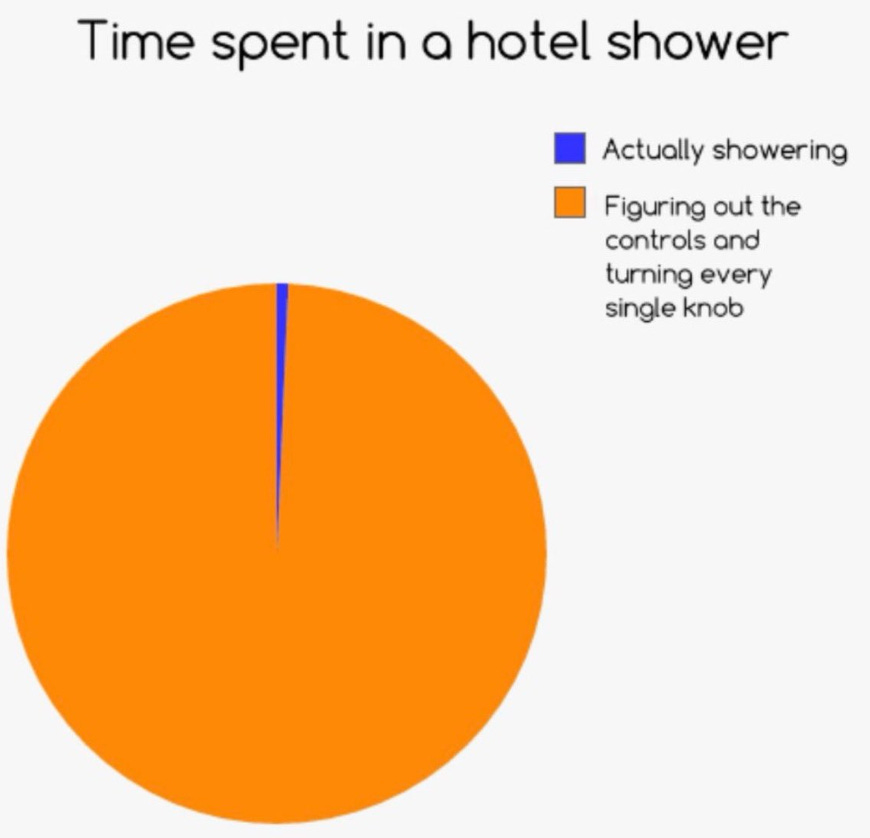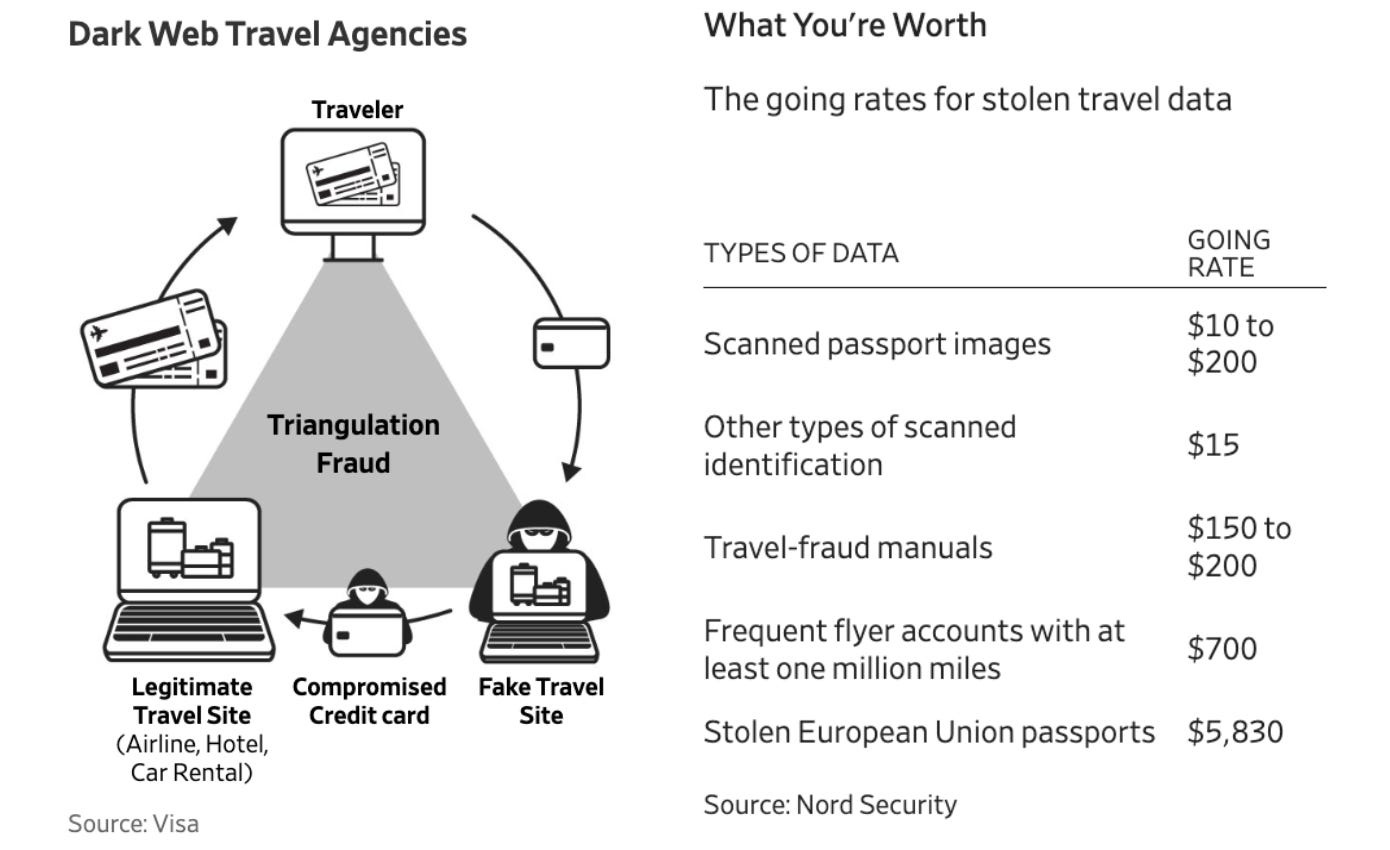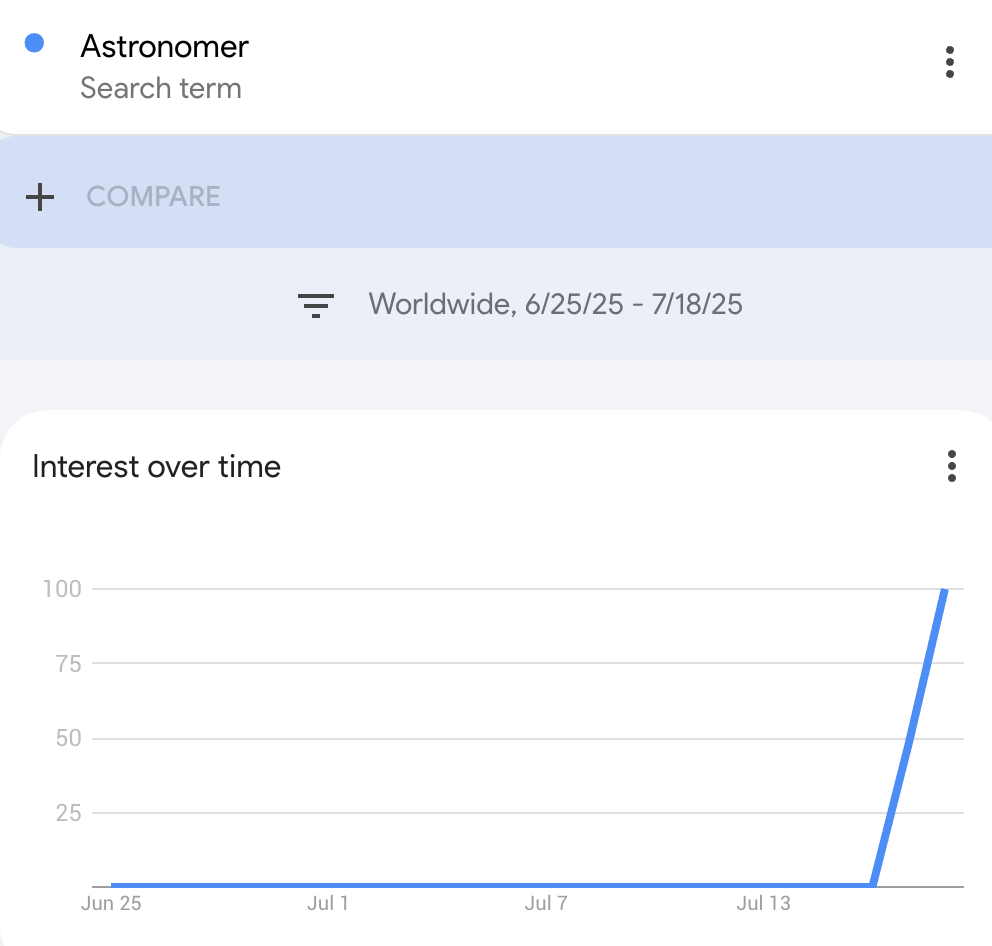Ultimately, it comes down to taste. It comes down to trying to expose yourself to the best things that humans have done, and then try to bring those things into what you're doing. — Steve Jobs
Special thanks to Propellic for sponsoring this edition of the newsletter:
Curious how AI is revolutionizing travel bookings? Discover the strategies driving success for leading travel companies. Subscribe to the bi-weekly NavLog: a research-driven newsletter built for travel marketers. - Join 1,000+ travel marketers
1. Closing the gap between taste and talent
In a clip from a talk he gave over 15 years ago, This American Life creator Ira Glass shared a piece of advice every founder should hear: most people who get into creative work do it because they have good taste. But early on, your output won’t match it. There's a gap between what you want to create and what you’re capable of delivering. That’s where most people quit. But don’t quit (for this reason). The only way to close the gap between your ambition and your output is to increase your volume. Ship more. Finish things. Set deadlines. Share the work. It’s the reps that move you forward. That’s how your skill catches up with your taste.
This applies just as much to product design, onboarding flows, and founder storytelling as it does to radio or film. If you’re building in travel, you probably already have a strong sense of the kind of experience you want to create. Your early versions will fall short. That’s normal. Taste is your edge. Use it, and keep going.
2. Speed matters more than it seems
If volume is how your skills catch up to your taste, then speed is what makes that volume possible. James Somers explains the often-overlooked psychological benefits of speed. The faster you work, the lower the perceived cost of starting. Slow work feels heavy. You delay. When you move quickly, you’re more likely to start things, finish things, and try again. The task feels cheaper in your head. You get more reps. And, as Ira Glass said, that volume is what closes the gap between taste and talent.
Somers also points out something every founder sees firsthand: fast systems attract more input. Teammates route work to fast colleagues. Customers engage with fast support. Contributors stay active when pull requests get merged quickly. Slowness quietly drains energy from everything. Read + James Somers
3. Speaking of speed…
SpaceX’s Starship could one day fly you from New York to Paris in 30 minutes, London to Dubai in 29 minutes, or Hong Kong to Singapore in 22 minutes. Most long-haul flights would be under 30 minutes. The rocket hits 27,000 km/h by launching into space, then drops you back down on the other side of the world.
Like most of Elon’s ideas, it started as science fiction. But it’s now pending approval.

4. If your product is great, it doesn’t need to be good
This post from 2010 is still one of the clearest explanations of why most products fail; not from lack of effort, but from lack of focus.
Paul Buchheit (creator of Gmail) argues that great products do just a few things extremely well. iPod, Gmail, and iPhone were all launched with minimal features, but they nailed their core value so well that everything else could wait. The mistake, he says, is trying to make a “good” product by checking all the boxes. If your product needs ten features to feel complete, it might not be very good to begin with.
In travel, we sometimes build too much too early, trying to match incumbents, adding booking options, AI assistants, loyalty tools, or dashboards before getting the core user value right. Paul’s post is a reminder to cut ruthlessly and focus on what actually matters.
(I’m pretty sure I’ve shared this one before, but it’s worth revisiting every now and then.)
5. Taste is the new intelligence
How do you decide what’s worth building in the first place? It’s not a question more data or sharper frameworks can always answer. In Taste Is the New Intelligence, Stepfanie Tyler gives a thoughtful case for taste, not as aesthetics, but as discernment. She argues that in a world where anyone, and any AI, can make anything, the real challenge is knowing what’s worth making. We used to treat intelligence as the ability to collect facts. But AI can do that better than anyone. What matters now is the ability to filter and to notice what’s meaningful.
Bad taste is immediate. It’s sugar. It’s scrolling. It’s dopamine without digestion. Good taste is remembered. It lingers. It teaches. It reshapes your interior. — Stephanie Tyler
This applies directly to product building. Rick Rubin, one of music's most successful producers, doesn't even read music. But he knows when something feels right: "I don't know anything about music. My job is to listen, to feel whether it's alive."
Taste is knowing which features to cut, which metrics to ignore, and when to stop chasing what’s trendy. It's the difference between building everything users ask for and building what they actually need.
6. You^AI
If taste is knowing what matters, AI is your amplifier. But as Dharmesh Shah puts it, most people are thinking about this backwards: “It’s not you versus AI. It’s You to the power AI. AI will let you do things you were never able to do before, which will increase your value, not decrease it.”
AI will boost creativity, not kill it. Like spell check or Google, it frees you up to focus on higher-order thinking. Better ideas. Smarter flows. Clearer strategy.
Dharmesh’s simple rule: use AI every day. Before you write, research, or analyze, give it a shot. Pretend you’ve got an intern with a PhD in everything and see what it comes back with. The edge will go to those who treat it less like a tool and more like a teammate. Someone you train, give feedback to, and loop into your work. That’s when the compounding kicks in. Use it to push past your limits, whether that’s brainstorming faster, refining better, or shipping smarter. Read + Darmesh Shah
7. Dark web travel agencies: fraud, discounts, and really good customer service
Cybercriminals are now operating full-fledged travel agencies on the dark web, offering discounted trips paid for with stolen credit cards and loyalty points. Some even provide solid customer service, rebooking trips if fraud gets flagged. Globally, fraudulent travel transactions have reached an estimated $37 billion over the past year.
It’s a strange, semi-professionalized version of triangulation fraud: scammers advertise fake sites, customers pay a fraction of the cost, and the criminals book the trip using stolen credentials. For the traveler, it feels real, until it doesn’t.
The fraud is getting faster, smarter, and more organized. Read + WSJ
8. Treat Instagram as a search engine
In my last newsletter, I wrote about how Google is now indexing public Instagram posts—and why that changes the game for travel marketing. (link). In this post, Mario Gavira outlines what this shift means and how travel brands can respond. His key advice is to treat every Instagram post like a mini-landing page, complete with search-optimized captions, descriptive alt text, video overlays and keyword-rich bios. Just as important, you should build an integrated social-SEO strategy, merging the visual storytelling strengths of social teams with the search intent mindset of SEO. This update doesn’t just help the big guys. Boutique hotels and experience providers may be the biggest winners because authenticity and personality now have a path into Google results, and maybe even AI summaries too.
9. SEO bragging rights
Astronomer’s SEO lead shared a proud moment:
“Like all of you, we’ve been struggling with the decrease in traffic since the advent of ChatGPT… While our competitors hung around and felt sorry for themselves, we doubled down on our unique link building and authority creation formula (internal code name: Linkzilla)… For months, it seemed our efforts were in vain… Until today. Our dashboard started pinging like never before.”
But just… maybe don’t try to replicate this playbook.
(As far as I know, our sponsor Propellic helps travel brands grow traffic the old-fashioned way, with no scandals or drama involved.)
10. Hotel shower UX is still broken
Even the most design-forward hotels still forget that good taste includes usability 😂

Travel Tech Essentialist Job Board
→ Explore all 1,366 open roles on the Travel Tech Essentialist Job Board now.
Airbnb | Senior Manager, Advanced Analytics, International | USA | $208,000 - $260,000 + Equity
The Hotels Network | Market Manager LATAM (Cono Sur) | Mexico City
BizAway | Brand Marketing Manager | Barcelona
Scott Dunn | Travel Consultant - Latin America Specialist | New York City
📩 For monthly updates on the latest roles, subscribe to the Travel Tech Jobs newsletter
Raising a round?
If you are a startup looking to raise a round (from pre-seed to Series D), I can help (for free). Travel Investor Network is a private platform where I recommend innovative travel startups to investors and innovators. If you’re interested, please start by completing this form.
If you like Travel Tech Essentialist, please consider sharing it with your friends or colleagues. If you’re not yet subscribed, join us here:
And, as always, thanks for trusting me with your inbox.
Mauricio Prieto





